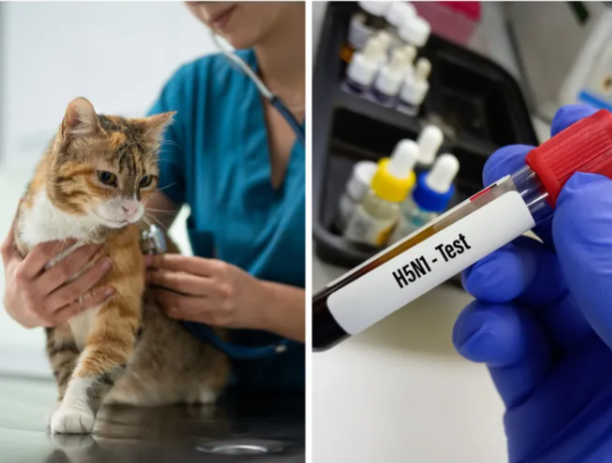Bird flu outbreak spreads to mammals in 31 states. At least 21 cats infected. What to know

Bird flu outbreak spreads to mammals in 31 states. At least 21 cats infected. What to know
By Jeanine Santucci, Mary Walrath-Holdridge, Eduardo Cuevas
The concerning bird flu outbreak that has spread to four humans so far as it expands quickly in the U.S. has jumped to dozens of species, infecting mammals in at least 31 states. Among those infected are cows in 12 states, foxes, mice, striped skunks, mountain lions and harbor seals, and alpacas.
At least 21 domestic cats in nine states have caught the virus since March 1, according to the U.S. Department of Agriculture. Cats that have tested positive include feral, barn cats and household pets.
 While it's possible a human could become sick from their furry friends, it's not very likely, the CDC says. The H5N1 virus could be spread through cats' saliva, feces or other body fluids. All the people who caught it were exposed on farms and fully recovered, and officials are working to reduce the spread. Yes, cats can contract bird flu if they interact with infected birds. Bird flu is primarily considered a transmission risk between wild birds and domestic birds; more recent presence of bird flu in dairy cows is believed to be a first for the species.
While it's possible a human could become sick from their furry friends, it's not very likely, the CDC says. The H5N1 virus could be spread through cats' saliva, feces or other body fluids. All the people who caught it were exposed on farms and fully recovered, and officials are working to reduce the spread. Yes, cats can contract bird flu if they interact with infected birds. Bird flu is primarily considered a transmission risk between wild birds and domestic birds; more recent presence of bird flu in dairy cows is believed to be a first for the species.
Researchers at Cornell University believe the affected Texas dairy cows were infected via water and food sources contaminated by wild birds migrating through the area. It was then likely spread between cows in close quarters. Dr. Elisha Frye, an assistant professor of practice at Cornell's Department of Population Medicine and Diagnostic Sciences, was called to an affected dairy farm in March to investigate the deaths of cows, birds and cats at the facility. Frye determined the presence of the illness in the cows using milk samples, manure and nasal swabs.
Testing was also done on dead birds found on the farm, as well as one of three cats found dead at the facilities around the same time. All the tests turned up evidence of the presence of bird flu. The CDC has records of sporadic mammalian outbreaks of the bird flu in the past, impacting both wild animals like foxes and bears, as well as pets like dogs and cats. Officials believe these cases are caused by the animals consuming infected birds and poultry. In 2004, an outbreak in domestic animals including cats and dogs was reported in Thailand, and another outbreak impacting pets occurred in Germany and North America in 2006. The organization says humans contracting the virus from their pets is very rare and unlikely but has happened as a result of prolonged, unprotected exposure.
In 2016, a veterinarian in New York City contracted bird flu from repeated exposure to sick cats without protective gear. The vet suffered mild flu symptoms.
